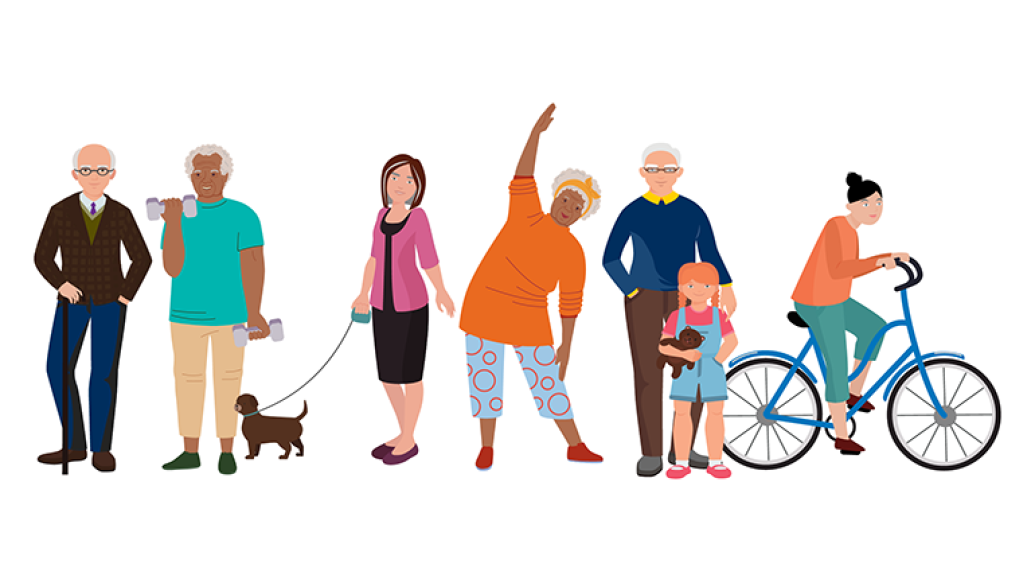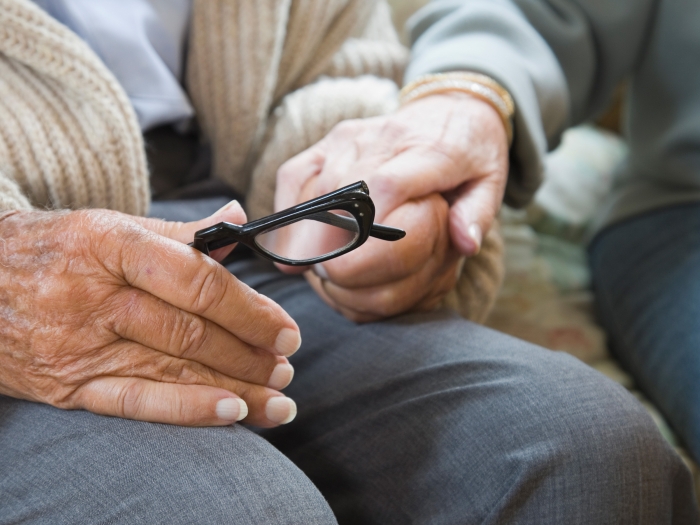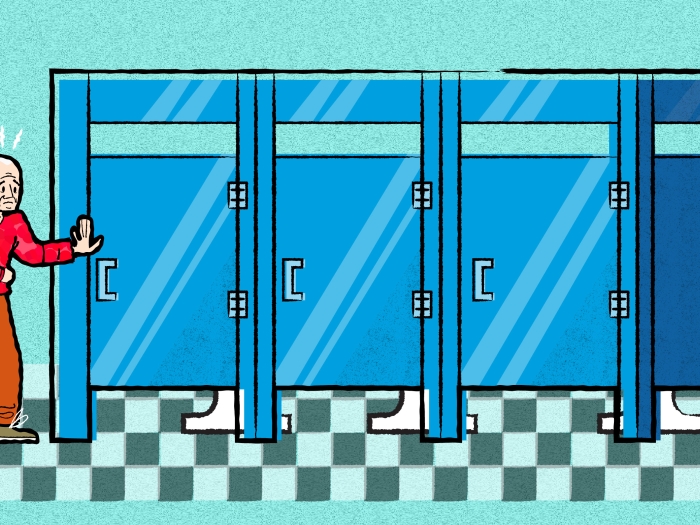How Michigan Medicine created a poll that became a household name in less than five years.
Author |

We know more about adults age 50-80 than ever before. We know that the majority of older adults experience everyday ageism. We know their pets have a positive effect on their health, and about half (48%) believe they're likely to develop dementia in their lifetime (although the actual percentage who will develop it is much lower). And this is just a fraction of what the National Poll on Healthy Aging (NPHA) has uncovered.
When the NPHA began in 2017, no one thought it would become a household name so quickly. But in just a few years, it did. And that's due in large part to the relationship between AARP and the University of Michigan Institute for Healthcare Policy and Innovation (IHPI), where the poll is housed. Poll results from an academic research center would normally be disseminated to the public slowly, beginning with articles in academic journals whose readership is limited. But AARP had 38 million members as of 2018, and AARP magazine has the largest circulation of any magazine in the U.S. That following has helped the NPHA gain recognition and showcase poll results from a representative sample of older adults from across the nation.
"The academic work lives with us [at IHPI], but AARP is more than just a usual sponsor," says Preeti Malani, M.D., MSJ, chief health officer and professor of internal medicine in the Division of Infectious Diseases. "They help amplify and hone our messages. We call them our AARP family, and I mean that in a genuine way. We meet weekly with them around communications."
When the pandemic hit, the NPHA was in a perfect position to find out how older adults were affected. The poll revealed a lot over the last year and a half. Loneliness among older adults doubled in the first months of the pandemic. The poll also showed how older adults handled the transition to more telehealth visits and whether or not they were planning to get a COVID-19 vaccine (58% were at the time of polling in October 2020). And it revealed that many older adults have not made an advance care plan in case of a serious illness, despite being more likely to contract a serious case of COVID-19 than their younger counterparts. More recently, the poll showed that older adults have struggled with mental health and lost sleep during the pandemic. The same poll also indicated a lot of long-term resilience.
So what do older adults want most?
The affordability of health care and health insurance is a big issue that IHPI has helped influence. And if there's one thing the poll has shown without a doubt, it's that older adults want access to high-quality, affordable health care. But how can these poll results be leveraged to make real change?
IHPI brings together more than 650 faculty who study health, health care, and the impacts of health policy. As IHPI celebrates its 10th anniversary of ongoing collaborations and policy-focused research, it is poised to take advantage of policy windows. Those are the moments in time when Congress and state legislatures are ready to act on certain issues and may be influenced by current research.
In 2019, the NPHA found that one in five adults age 50-64 (19%) either kept a job, considered delaying retirement, or delayed retirement to keep their employer-sponsored health insurance. That report informed Senator Debbie Stabenow's proposal to lower the Medicare age to 50. Although Congress has not yet passed such legislation, Malani thinks such discussions could be on the horizon, especially because so many people lost jobs during the pandemic.
IHPI research has already led to some legislative changes in health insurance, though. "At the end of 2020, Congress passed legislation limiting surprise bills from out-of-network providers," says John Ayanian, M.D., MPP, director of IHPI and the Alice Hamilton Distinguished University Professor of Medicine and Healthcare Policy. "That was very much informed by research conducted by IHPI faculty and supported by our policy engagement team, which works closely with the national poll team. We're always looking for opportunities like that."
And there may be another policy window on the horizon for adding a dental benefit to Medicare. In 2017, the NPHA showed that dental care is a common unmet need among middle age and older adults, and NPHA poll results published in March show that 93% of older adults are in favor of adding a dental benefit to Medicare. Ayanian says Congress may consider this benefit, as well as discussing hearing and vision services. Malani says, "It might actually happen, because 93%! I don't think there's anything that people agree on at 93%," she says.
"It's important to be doing high-quality research on an ongoing basis, so we can take advantage when opportunities for policy change arise," says Ayanian.
Malani says the NPHA offers opportunities to make positive changes outside of policy as well, including timely information and insights for health care providers, older adults, and their families. Referencing the poll that showed increased loneliness among older adults, she wonders, "Can we have our college students engage with local older adults who might be lonely?" She recalls a program at Northwestern University where students went grocery shopping once a week with older adults. "It would be a win-win."





